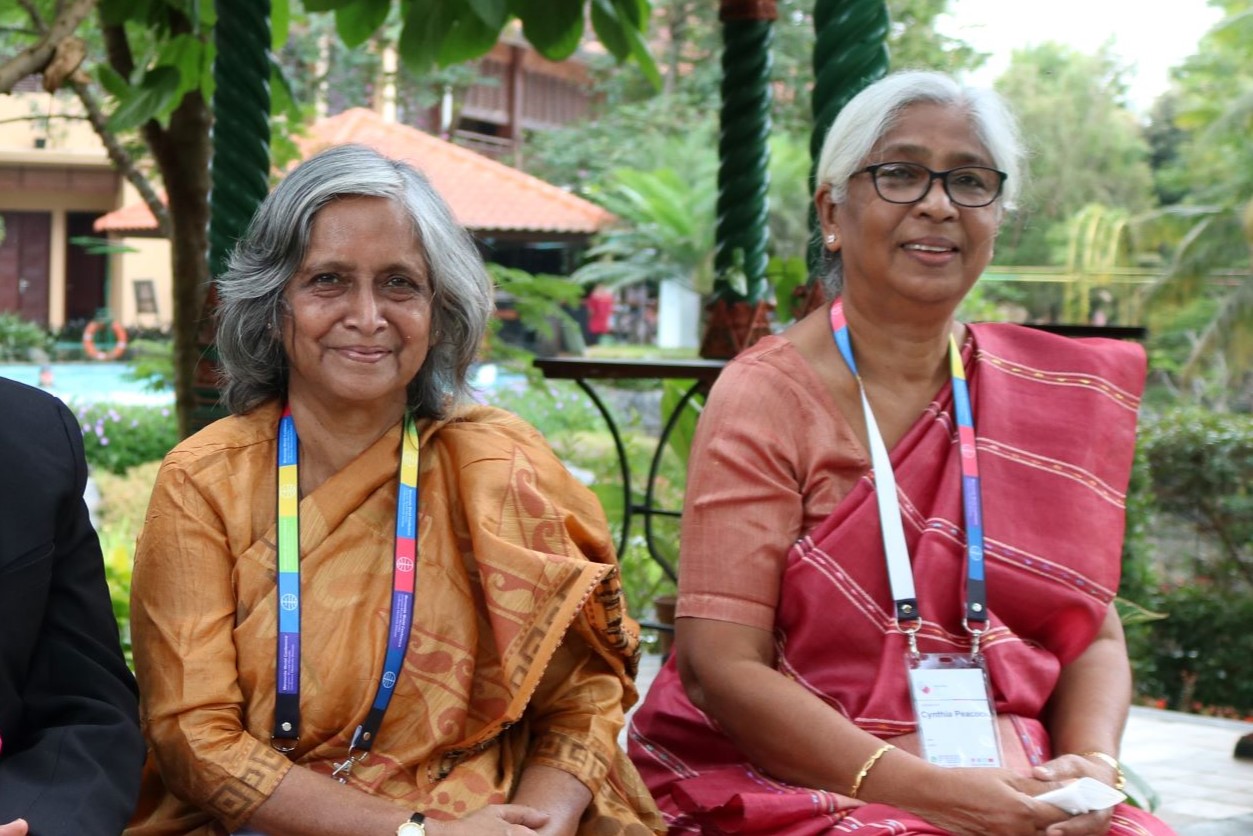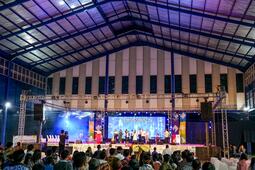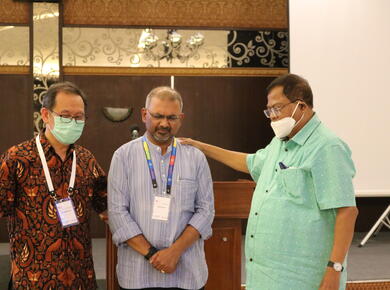Posted: July 9, 2022
“The persecution of Christians in India is intensifying as Hindu extremists aim to cleanse the country of their presence and influence,” reports Open Doors’ World Watch list which ranks India as 10 on the list of 50.
Timo Doetsch, pastor of children and youth at Evangelisch-mennonitische Freikirche Dresden, Germany, interviewed Vikal Pravin Rao, executive secretary of the Mennonite Church in India, Dhamtari, and a member of the MWC Deacons Commission, and Sipra Biswas from Kolkata, general council member from Bharatiya Jukta Christa Prachar Mandali.
Could you describe the situation?
Sipra Biswas: We in Kolkata, do not have direct persecution at present,… but in the villages, in the rural area, persecution is there.
Vikal Rao: I belong to Chhattisgarh, one of the central states of India. In recent times, churches have faced persecution from the Hindu extremists. But persecution is not only in the form of physical harassment or damage to the property. Christians as a minority are mentally persecuted: our voices are not heard…. Even though we have the legal documents for our properties and for our churches, we always are a target.
Sipra Biswas: But mostly, all the states have more or less cases of persecution.
Vikal Rao: We cannot get open meetings like the majorities, we have to get permission. That is also a part of persecution.

Another thing is: It is mandatory in India to register any organization under FCRA (Foreign Currency Regulatory Act)…if you want to receive foreign aid or help. In the recent year (2021), the government of India cancelled the FCRA registration for many Christian and Muslim organizations, for example, MCSFI (Mennonite Christian Service Fellowship of India). Many of our churches are waiting for their FCRA renewal.
This is resulting that churches are not able to do the social work. Through the foreign help we were actually able to serve the community.
Sipra Biswas: Anti-conversion laws is another thing. Dalits were neglected people of the societies, but Christianity helped them to feel like human beings, to feel their importance. Now, in many places, they are forced to join Hinduism.
The first [threat] is money or “If you do this, you have to suffer the consequence.” So, this is a fear people have.
To take baptism there will be legal procedures. You have to go to the court and tell nobody has forced me or given money.
Christians don’t force, [yet] we were accused to tempt people to be Christians.
Officially, India is a secular country with religious freedom. How then can it be, that there are anti-conversion laws?
Vikal Rao: The legislative assembly has the power to amend some of the constitution. But now, they say: You cannot convert. Earlier days, we were able to preach openly the good news of the gospel on the markets. Now if we were doing it, we would be beaten or put into jail.
How do the minorities in India react?
Vikal Rao: Muslims sometimes with violence. Christians most of the time [are] silent. Sikh, Jainists and Buddhists have no problem.
What do you think are practical and spiritual ways for Indian Christians to deal with the situation?
Vikal Rao: Prayer is the thing we believe helps. We pray for those who persecute us. And we would like to share Christ’s love through our living and action…. We are not protesting. We are not getting violent. We are for peace.
What is your prayer request for the global MWC family?
Vikal Rao: That the churches can become the agents of peace and love of Christ. That they can follow the way Jesus teaches us.




Join the Conversation on Social Media
FacebookTwitterInstagramFlickrYouTube